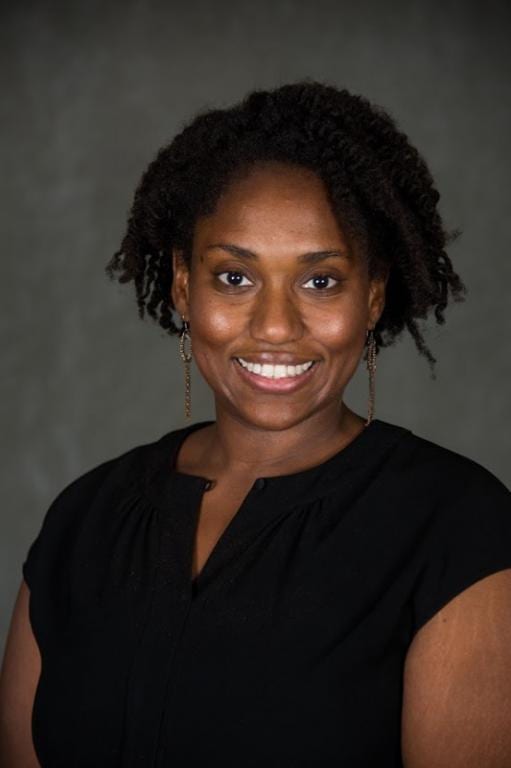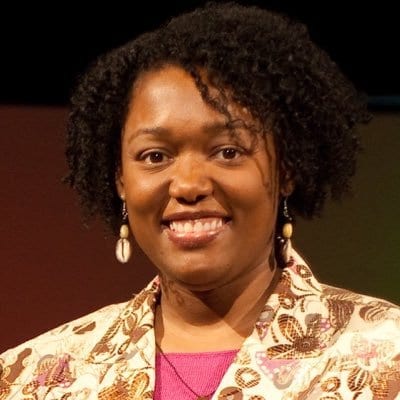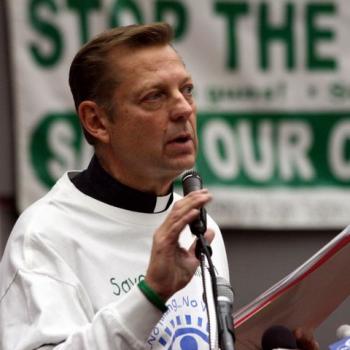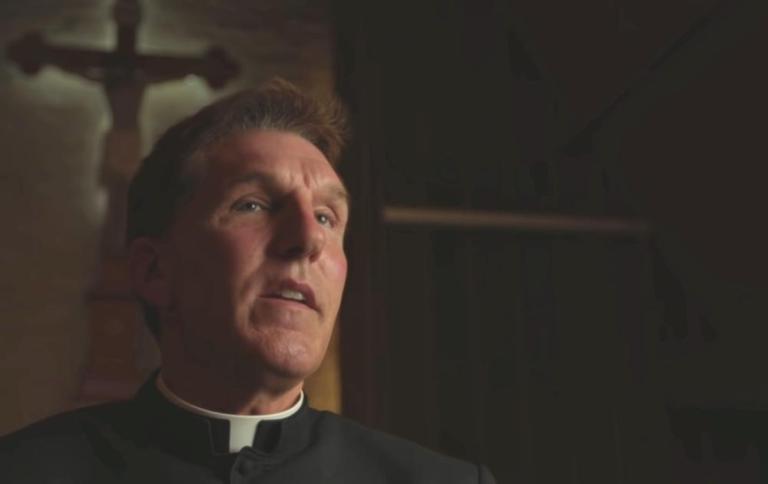
Last month, I covered a virtual panel discussion on racism organized by Georgetown University’s Initiative on Catholic Social Thought and Public Life.
The immediate headlines focused on Archbishop Wilton Gregory of Washington D.C. standing by his criticisms of the St. John Paul II National Shrine hosting a visit by President Donald Trump a day after the president’s Bible photo opp, which was made possible by federal agents using tear gas and rubber bullets to disperse anti-racism protesters near the White House.
Gloria Purvis, the EWTN radio host and pro-life activist, was the breakout star from that panel, as her strong denunciations of racism garnered her the admiration of allies but also pushback from critics unsettled by her frank talk on systemic racism and her willingness to discuss the uncomfortable subject on her radio show, Morning Glory.
But an overlooked aspect of that Georgetown panel – probably my favorite part – was some straightforward analysis offered by Dr. Marcia Chatelain, associate professor of history and African-American studies at Georgetown University. Chatelain told the virtual panel that the Catholic Church in the United States is well-versed in what has to happen to address racism in our country.
“But there’s no political will and there’s no desire because racism allows for some people’s property values to remain high. It allows some schools to remain prestigious and others to remain under-resourced,” said Chatelain, the author of the new book, “Franchise, the Golden Arches in Black America.”
Chatelain told the panel that she was “at a loss” with just how much more sophisticated our “national discussion” on racism could get without real action.
Racial Justice is Going to Cost Us Something
We know how the legacy of slavery, Jim Crow, red-lining, police brutality, discriminatory hiring and employment practices, underfunded schools in the inner cities, and our unjust and ridiculous “war on drugs” – among other factors – have all contributed to create cultural, societal and institutional barriers that make it difficult for people of color to fulfill their human potential.
But are we as Catholics willing to not only discuss this reality in academic symposiums and lecture halls, but to also make real sacrifices to bring about justice for our black-and-brown-skinned brothers and sisters? Anyone can talk a good game and act “woke” on Twitter, but when it’s gut-check time, will we step up and take action, even if it costs us something in real life?
Will Catholics like myself of white European descent, for example, give up certain tax breaks and privileges for the interest of paying for fundamental systemic reforms that could shore up the under-resourced schools in our inner cities? Are we up to spending a night in jail for protesting racism when the authorities threaten to arrest us, or mysteriously detain us in unmarked vehicles? Are we okay with diverting billions of dollars in federal military spending to new social programs that could further level the playing field for people of color?
Chatelain was skeptical.
“Catholics fetish-ize the idea of Catholic Social Teaching… at the expense of not realizing that if justice is going to come, it’s going cost us something,” said Chatelain, who added that many of the same people who march for the unborn every year in Washington D.C. are “bewildered” as to why people are now taking to the streets against police brutality.
“The same people who were curious about Georgetown’s slavery initiative are apoplectic when the students want the university to pay $54 a year for reparations,” Chatelain said in referencing the university’s process of coming to terms with its slave-owning past.
What Are We Willing to Pay?
A big problem here, Chatelain said, is that some privileged communities are unwilling to think about how they have benefited from that system of racial violence. It’s not only an unsettling topic, but it demands a serious response – even a radical one in some ways – that many Americans are showing right now that they are not willing to make.
“Most people won’t burn a cross on someone’s front yard, but they’ll go to extraordinary lengths to support candidates who don’t want to share tax revenues with urban schools, who will degrade the black students in their kids’ Catholic high schools to the point that when I go to speak at the schools, the parents are crying in front of me because they can’t believe how disrespectful [their kids] are,” Chatelain said.
Many of those same people, Chatelain added, are the same Catholics who, whenever she walks into a church, will look at her as if to ask, “What’s she doing here?”
“If we are a people of faith, then we would be willing to liquidate every asset the Church has and start anew,” Chatelain said, who noted instead that many Americans – Catholics included – seem to be fine with government policies that may be cruel toward some people – family separation of migrant families comes to mind – but that secure their place in society.
Said Chatelain, “It’s the most disgusting thing I’ve witnessed in my time, that people are willing to let others suffer so they can get a tax cut.”
The conversation about racism has happened many times, especially in recent years. A 6 1/2-year-old child in the United States has now lived through two major racial uprisings, said Chatelain, who added though there has never been a real moment where white Americans ask themselves, “What are we willing to pay? We have reaped so much from this system of inequality, what are we willing to give back?”
The present moment on race relations – which some see as a reckoning – has at the very least created space for substantive discussions on topics like police reform. Chatelain told the panel that a new world is indeed possible, but she questioned whether American Catholics are ready to pay the price to see the world that we say we want, and that we profess to believe we are ready for.
Are we?
– 30 –












